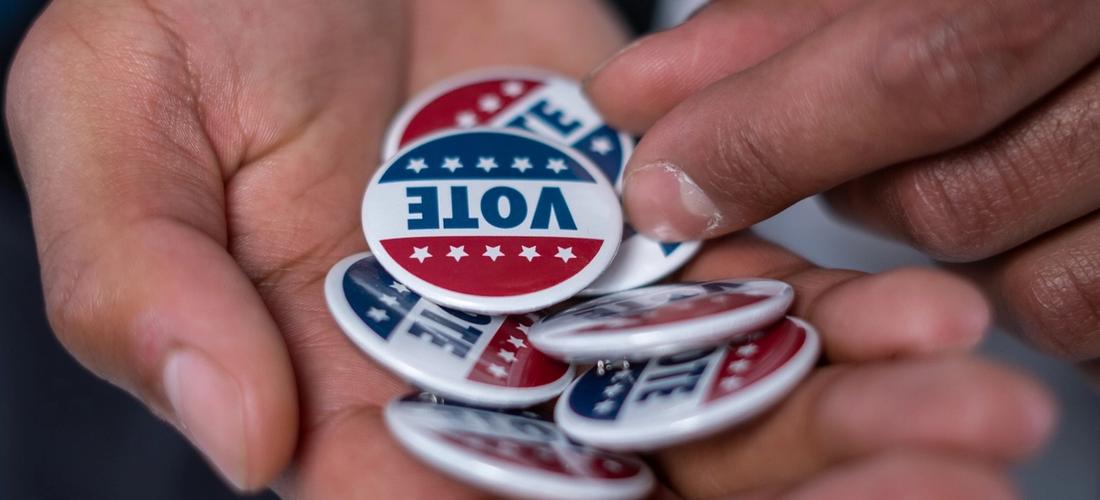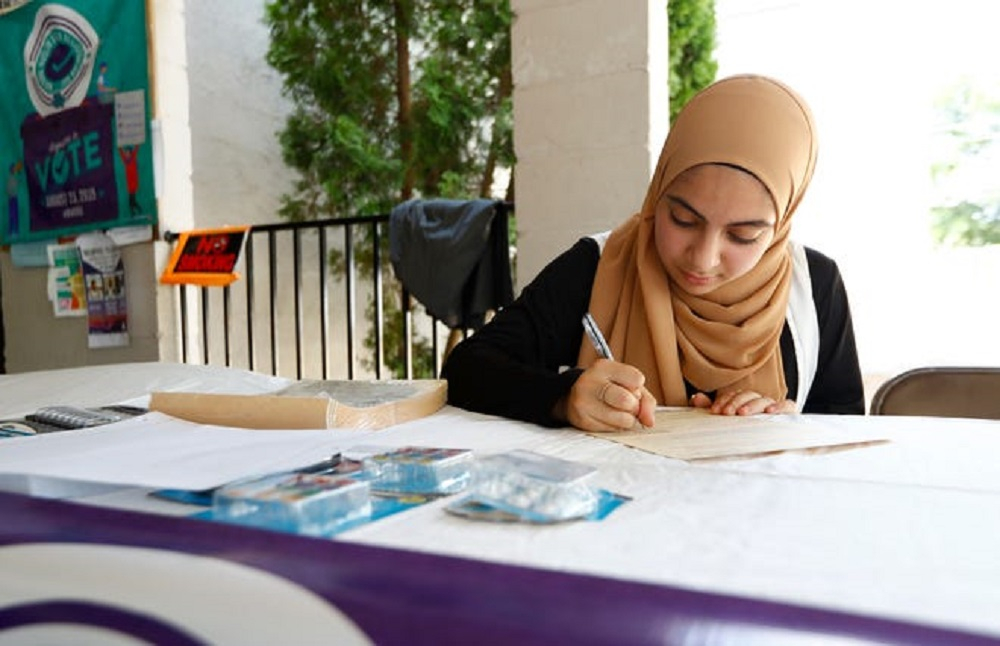Your Vote Matters – How Muslim Organizations Are Working to Get Out the Vote
Current Events
|
Oct 6, 2020
|
5 MIN READ

Photo by cottonbro from Pexels
Elections are less than a month away, and American Muslim groups are scrambling to get Muslims to the voting polls – either through absentee ballots or in-person for November third. Knowing that every vote is crucial, a number of organizations have voter drives and campaigns happening to encourage Muslims to vote and vote early.
Pew Research estimates there are 3.45 million Muslims living in the U.S. since 2017 with numbers expected to increase, possibly making the Muslim population the second-largest faith group in the U.S. by 2040. During the last presidential election in 2016, about one million Muslims were registered to vote, according to the U.S. Council of Muslim Organizations. A number of Muslim organizations hope to increase or double that number this year (see below for a breakdown).
Though the national voter registration already happened on September 22 (held the fourth Tuesday of September each year), you can still register to vote (or check to see if you are registered) in many states. Here are the voter registration deadlines per state. In some states you can even register the same day as when election voting is happening.
The Institute for Social Policy and Understanding, a social think tank, reported that while 68 percent of American Muslims registered to vote in the 2016 presidential elections, 61 percent actually voted. The reasons people vote are tied to educational backgrounds, mosque attending habits, gender and age groups, according to the ISPU report. The United State Election Project said 58.1 percent of eligible voters did not vote in the 2016 election - although 138 million people did - about 61.4 percent of Americans.
Along with more Muslims going to the voting polls, there are also more running for office to provide representation in public office and serve their communities, notably after President Donald Trump took office nearly four years ago. About 100 Muslim candidates ran for office post-2016 presidential election. Many of them said they pursued public office to counter anti-Muslim sentiments due to the Trump administration’s anti-Muslim policies.
Muslims have historically been targeted by negative political rhetoric during presidential election campaigning, notably after 9/11. In the United States. CAIR, a national civil rights organization, reported in 2017 “a 57 percent increase in anti-Muslim incidents in 2016 over the previous year … ” and a “44 percent increase in anti-Muslim hate crimes.” That was followed by the Muslim ban in January 2017 along with ongoing hurdles faced by Muslim communities, such as increased surveillance and being unduly put on terror watch lists.
While ISPU said younger voters are less likely to register and vote, some younger voters said they are growing up in the backdrop of being harassed as Muslim Americans watching their families getting harassed. They want to see that change.
Thought leaders Nadia B. Ahmad and Ahmed Bedier said Muslim votes helped elect Bush in 2000 with 17,000 votes, which they expect to have similar effects the the 2020 presidential election for Democratic Presidential candidate Joe Biden, especially in the swing states of Michigan, Pennsylvania, Virginia, Florida, Minnesota, North Carolina and Texas.
Here are a few voter registration drives being held to engage younger and older Muslim voters, teach them about key issues that impact Muslim communities and get out the vote.

Haneen Jaber, turning 18 in October, fills our her voter registration card in Memphis, Tenneesee. Image source: Commercial Register, by Joe Rondone.
1. MPower Change #MyMuslimVote Campaign: This online digital platform, launched in 2016 to mobilize and educate Muslim voters, grew into “the largest Muslim digital advocacy organization in the U.S. with a membership over a quarter million.” It was founded by Linda Sarsour, one of the four original Women’s March founders; Mark Crain, Executive Director of DREAM Detroit; and community strategist Dustin Craun in 2014. The advocacy group works collaboratively to incorporate spiritual grassroots activism.
#MyMuslimVote is a national effort to share reasons why Muslims should vote, highlighting facts for voters to learn about the Muslim Vote. Using information based on a Pew Research report from 2017, #MyMuslimVote sheds light on what voters care about: humanitarian issues, civil rights and ending the Muslim ban, among other high priority issues. Muslims can host virtual phone banking parties during COVID to call and inform potential voters on key issues.
2. Emgage Million Muslim Votes campaign: The national Muslim advocacy group Emgage is working to register a million Muslim voters by election day. Along with phone banking and texting potential voters to show up to the voting polls (or vote via absentee ballots), they are working with partners in swing and key states to get out the Muslim vote. Emgage helps train and empower partners to use tools with “Get Out The Vote strategies.”
3. U.S. Council of Muslim Organizations: According to their website, in 2006 six million voters did not register to vote due to missing the deadline. Therefore, USCMO works with partner organizations to register Muslims to vote every year.
4. CAIR: The Council on American-Islamic Relations is holding virtual phone and text banks this year to inspire voters. CAIR has chapters across the nation. Their website includes information about voting, a video to help people walk through the registration process and state-by-state registration information.
5. Georgia Muslim Voter Project: Founded in 2015, the organization was created to counter anti-Muslim rhetoric. It has been instrumental in registering Muslim voters through grassroots mobilization – such as registering 2,000 new voters, phone banking and more.
There are many ways to educate yourself about how you can vote and if you can still register, if you are not registered. If you want to read a political fact-check of ongoing election coverage, check out this guide on PolitiFact, a nonprofit fact-checking group, which analyzes national and state political comments. Many of these organizations are working together, however, advocacy begins with you at home.
We cannot give into voter apathy or fear of voting during the COVID-19 global pandemic. There are safe ways to vote, and we all must make it a priority. Talk to family and friends about key issues. Pew Research has a guide here. Check for key dates in your state. The 2020 presidential election is one of the most critical junctures in our time for the United States as a country and American Muslims as a collection of communities, and your vote matters.
Subscribe to be the first to know about new product releases, styling ideas and more.
What products are you interested in?

